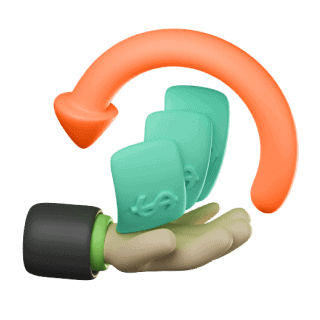Interview Inquiries to Use for Hiring Scala Programmers
Finding the proper Scala programmer requires a multifaceted approach. Technical skills are crucial, but a robust understanding of core concepts and therefore the ability to think critically are equally important. Here's a breakdown of varied interview question categories to assist you in assessing potential candidates.
Core Scala Fundamentals
A solid grasp of Scala's fundamental building blocks is important for any Scala developer. These questions assess the candidate's understanding of core concepts that form the inspiration for effective Scala programming:
- What are the key differences between object-oriented and functional programming paradigms?
- Explain the concept of immutability in Scala and its benefits for concurrent programming.
- How does type inference work in Scala? Provide an example.
- Differentiate between val and var. When would you use each?
- Describe the purpose of the implicit keyword in Scala and give an example of its use.
Hire Scala developers who can confidently explain these concepts and demonstrate their application in practical scenarios.
Functional Programming Concepts
Functional programming is a cornerstone of Scala. These questions delve into the candidate's proficiency with functional idioms and paradigms that contribute to clean, concise, and maintainable code:
- What are higher-order functions and how do they contribute to concise and expressive code in Scala?
- Demonstrate your understanding of functional idioms in Scala, such as map, filter, fold, and reduce.
- Explain the concept of pattern matching and its usage in functional programming.
- How do you handle side effects in functional Scala code?
Ideal candidates will possess a strong grasp of functional programming principles and be able to apply them effectively within their code.
Advanced Scala Topics
For senior positions or roles requiring in-depth Scala expertise, exploring these advanced topics can reveal the candidate's experience with frameworks and tools that enhance code reusability, scalability, and performance:
- Describe the Actor Model and its role in building concurrent applications with Akka.
- Explain the concept of type classes and their use in promoting code reusability and polymorphism.
- How do you leverage Futures and Promises for asynchronous programming in Scala?
- Discuss your experience with Scala testing frameworks like ScalaTest or Specs2.
These questions are best suited for identifying candidates with a strong understanding of advanced Scala features and frameworks.
Scenario-Based Questions
Moving beyond theoretical knowledge, scenario-based questions simulate real-world challenges faced by Scala developers. These questions assess the candidate's problem-solving approach, design decisions, and ability to translate theory into practical solutions:
- Present a real-world programming challenge you've faced using Scala. How did you approach it and what was the outcome?
- Describe a situation where you had to optimize the performance of a Scala application. Explain the techniques you employed.
- You're tasked with designing a highly scalable API for a microservice architecture. How would you approach this using Scala?
Hire Scala programmers who can not only identify the problem but also articulate a clear thought process, explain their design choices, and showcase their ability to translate knowledge into action.
Soft Skills and Problem-Solving
Technical expertise is just one piece of the puzzle. These questions delve into the candidate's soft skills and ability to adapt to new challenges:
- Explain your process for debugging complex Scala code.
- Describe your experience working collaboratively in a team environment.
- How do you stay up-to-date with the latest advancements in the Scala ecosystem?
- Present a situation where you had to overcome a technical hurdle; explain your thought process and the solution you implemented.
Ideal candidates will demonstrate strong problem-solving skills, a collaborative spirit, and a continuous learning mindset. These qualities are essential for success in any development team.
By incorporating these diverse question categories into your interview process, you'll gain valuable insights into a candidate's technical proficiency, problem-solving skills, and overall fit for your team. Remember, the ideal candidate isn't just someone who can write clean Scala code. They should also possess a passion for learning, the ability to adapt to new challenges and communicate effectively.








 Post your Scala vacancy on the platform
Post your Scala vacancy on the platform Set the recruitment fee that fits your budget
Set the recruitment fee that fits your budget Hire the best specialist out of the pre-vetted candidates
Hire the best specialist out of the pre-vetted candidates









